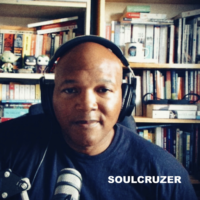yesterday, i let the citizen have a go at blogging. today i thought i’d let the historian have a turn; i am, after all, a trained historian, and considering today is the 232nd-year anniversary of King Louis XVI’s execution, why not?!
The morning of January 21, 1793, was bitterly cold in Paris. The air carried the bite of frost and the tension of history in the making. At the break of dawn, a man who once commanded the splendour of Versailles and the loyalty of millions sat quietly in his cell. Louis XVI, King of France and Navarre, now Citizen Louis Capet, awaited his final journey—one that would take him from the Temple prison to the guillotine at the Place de la Révolution.
Louis, once the Sun King’s great-grandson, was no longer a monarch but a man stripped of his titles, his power, and soon, his life. The king had been on trial for weeks, accused of high treason by the National Convention, the revolutionary body that had seized control of France. The charges against him were damning: conspiring with foreign powers, attempting to crush the revolution, and betraying the people of France. Found guilty, he was sentenced to death by a narrow margin. In the eyes of the revolutionaries, the fate of France’s future required the death of its past.
The story of Louis XVI’s fall began years before that fateful morning, in the gilded halls of Versailles. The young Louis ascended the throne in 1774 at the age of 20, burdened with the weight of a kingdom riddled with debt and unrest. Shy, indecisive, and ill-prepared for leadership, he struggled to navigate the complexities of a changing world. His queen, Marie Antoinette, became a lightning rod for public resentment, a symbol of royal excess in a land where the common people starved. Together, they embodied the old regime, seemingly blind to the rising tide of revolution.
By 1789, that tide had become a deluge. The Estates-General, convened to address France’s dire financial crisis, unravelled into a revolt. The storming of the Bastille in July marked the revolution’s violent birth. In the years that followed, Louis tried to appease the revolutionaries while clinging to the vestiges of his authority. Each concession eroded his power further. By 1791, the royal family attempted to flee Paris, disguised as ordinary citizens, hoping to find refuge with loyalist forces in the east. They were captured in Varennes, dragged back to Paris, and confined to the Tuileries Palace under close watch.
The illusion of a constitutional monarchy crumbled when radical factions like the Jacobins gained control. By 1792, war erupted between revolutionary France and the monarchies of Europe. The National Convention declared the abolition of the monarchy, transforming France into a republic. The king, now a prisoner, awaited judgement as the question loomed: could the revolution survive while the king lived?
On the morning of his execution, Louis was resolute. Having spent the previous day in prayer and confession, he requested a final Mass and refused the counsel of his supporters to attempt an escape or plea for clemency. The revolutionary government wanted a spectacle, and Louis, perhaps resigned to his fate, would not deny them that. As he stepped into the carriage that would take him to the guillotine, the streets of Paris were alive with both fury and fear. Guards lined the route, their bayonets glinting in the pale winter light, as crowds surged to glimpse their former king. Some shouted insults; others wept silently.
The Place de la Révolution (once the Place Louis XV) was a grim theatre for this unprecedented act. The guillotine stood like a menacing altar at its centre, framed by the distant silhouette of the Tuileries. As Louis ascended the scaffold, he remained calm, even as the crowd roared around him. He addressed them briefly, proclaiming his innocence and praying for the unity of France. The executioner, Charles-Henri Sanson, quickly secured him to the plank.
At 10:22 a.m., the blade fell, severing the head of the monarchy itself. Sanson held the king’s head high, displaying it to the crowd. A moment of stunned silence gave way to cries of “Vive la République!” Blood stained the snow-dusted ground as the crowd surged forward, some dipping their handkerchiefs in the royal blood as a macabre keepsake. The death of Louis XVI was not just the end of a man but a seismic rupture in the fabric of European history.
France, liberated from centuries of absolute monarchy, stood at the threshold of a new era. Yet the guillotine that silenced Louis would not be satisfied with just one king. The Reign of Terror loomed, a grim reminder that revolution devours its own.
Louis XVI’s death remains a moment frozen in time—a tableau of a world turning itself inside out. From the splendour of Versailles to the cold, sharp blade of the guillotine, his life and death encapsulated the seismic forces of change that would shape the modern world. His blood, spilt on the streets of Paris, became the ink with which a new chapter of history was written.
Takeaways
1. Adaptability Is Crucial in Times of Change
- Lesson: Failing to recognise and respond to changing circumstances can lead to stagnation and downfall. Louis XVI clung to outdated notions of monarchy, even as the tides of revolution demanded a new approach to governance.
- Personal Insight: In life, refusing to adapt to change—whether in relationships, careers, or personal beliefs—can leave you vulnerable. Embrace flexibility and learn to pivot when the environment shifts. Growth comes from evolving with the times, not resisting them.
2. Leadership Requires Accountability and Connection
- Lesson: Louis XVI’s detachment from the struggles of his people eroded trust and authority. A leader who fails to connect with those they serve is likely to face resentment and isolation.
- Personal Insight: Whether you’re leading a team, supporting a community, or navigating relationships, accountability and empathy are essential. Listen actively to others, take responsibility for your actions, and be willing to adjust your course based on feedback and shared goals.
3. Avoiding Hard Decisions Leads to Greater Consequences
- Lesson: Louis XVI’s indecisiveness worsened France’s crises as he delayed taking bold action to address economic turmoil and social unrest. By avoiding difficult decisions, he allowed problems to fester until they exploded.
- Personal Insight: Procrastination or avoidance rarely solves problems—instead, it often amplifies them. Taking decisive action, even when it’s uncomfortable, is a mark of maturity and personal power. Face challenges head-on and work through them with courage and clarity.
Q&A
Louis XVI was the last king of France before the French Revolution. His execution on January 21, 1793, marked a turning point in European history, symbolizing the end of absolute monarchy and the rise of republicanism. Louis’s inability to adapt to the changing political and social climate, coupled with his detachment from the struggles of the French people, ultimately led to his downfall.
France was facing numerous problems in the late 18th century, including:
Political Oppression: The absolute monarchy severely restricted individual liberties and political participation, fueling discontent among the populace.
Economic Crisis: Extravagant spending by the monarchy and a series of costly wars had plunged France into deep debt, leading to widespread poverty and hardship.
Social Inequality: The French society was deeply divided, with the privileged nobility and clergy enjoying vast wealth and power while the commoners bore the brunt of taxation and economic hardship.
While not directly responsible for the revolution’s outbreak, Louis XVI’s actions and inactions exacerbated the situation. His indecisiveness, reluctance to implement meaningful reforms, and attempts to suppress dissent only fueled the revolutionary fervor. His lavish lifestyle and perceived indifference to the plight of the commoners further alienated the populace.
Louis XVI initially attempted to appease the revolutionaries by convening the Estates-General, a representative assembly, to address the financial crisis. However, his unwillingness to fully embrace reforms and his attempts to retain control ultimately backfired. His ill-fated flight to Varennes in 1791, aiming to escape Paris and rally support against the revolution, further eroded public trust and sealed his fate.
Marie Antoinette, Louis XVI’s queen, became a symbol of royal extravagance and detachment from the realities of French life. Her lavish spending, Austrian heritage, and perceived influence over the king made her a target of public animosity. While her actual political influence was limited, she became a scapegoat for the monarchy’s failings in the eyes of the revolutionaries.
Following Louis XVI’s execution, the French Revolution entered a radical phase known as the Reign of Terror. Led by Maximilien Robespierre and the Jacobins, this period saw mass executions of those deemed enemies of the revolution. The instability and violence of the Reign of Terror eventually paved the way for Napoleon Bonaparte’s rise to power.
The story of Louis XVI offers valuable insights into leadership and the dangers of ignoring societal change. It highlights the importance of:
Decisiveness: Avoiding difficult decisions often leads to greater consequences, making it crucial to address challenges head-on with courage and clarity.
Adaptability: Leaders must be willing to embrace change and adapt to evolving circumstances to maintain relevance and effectiveness.
Accountability: Leaders are accountable to those they serve and must demonstrate empathy and understanding of their needs and aspirations.
Studying historical events like the French Revolution allows us to understand the complexities of social and political change. It provides valuable lessons about leadership, power, and the consequences of ignoring societal grievances. By examining the past, we gain insights into the present and can potentially avoid repeating mistakes in the future.




















